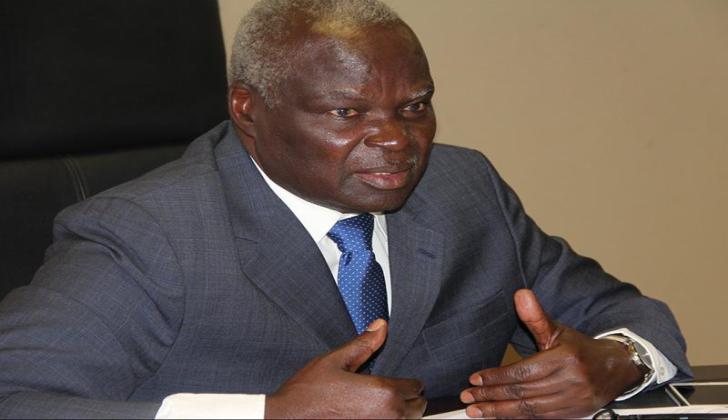News / National
Zimbabwe to produce solar panels, lithium batteries
14 Apr 2025 at 08:08hrs |
0 Views

Zimbabwe is set to begin large-scale manufacturing of solar panels and lithium batteries as part of a bold new initiative to boost the country's renewable energy sector. The development follows the recent approval of a Memorandum of Understanding (MoU) with the International Solar Alliance (ISA), which will see the establishment of a state-of-the-art Solar Technology Application Resource Centre (STAR-C) at Chinhoyi University of Technology.
The project aims to localize solar energy innovation, production, and training, equipping universities with advanced technology and enabling collaboration with international partners to transfer knowledge and expertise.
Announcing the development at the just-ended sixth International Renewable Energy Conference and Expo, Energy and Power Development Minister July Moyo said the initiative is a step towards unlocking Zimbabwe's vast renewable energy potential.
"We are convinced that the future is here, because of the technology we have," said Minister Moyo. "We want to partner our universities, and this week, the Cabinet approved a project to partner with Chinhoyi University of Technology on solar energy, covering all aspects of solar innovation, research, training, and potentially manufacturing our own solar panels and exploring battery options, given our lithium resources."
The project marks a significant shift towards energy self-sufficiency and technological empowerment. Zimbabwe, which boasts large deposits of lithium - a key component in battery storage - stands to benefit immensely from adding value through local production rather than exporting raw minerals.
Minister Moyo stressed the importance of aligning renewable energy initiatives with Zimbabwe's broader economic framework, which includes key sectors such as agriculture, mining, industry, and manufacturing.
"As stakeholders in renewable energy, we must also focus on these areas and identify opportunities within each one," he said.
As the country seeks to modernize and reduce dependency on environmentally harmful fuels, the Minister also called for a move away from the use of firewood, especially during the rainy season when smoke from wet wood poses health hazards.
"We're looking at clean cooking," he said. "We want to liberate ourselves and our women from the smoke produced by wet wood. Promoting clean cooking is part of our goals."
Minister Moyo further encouraged property owners, businesses, and homeowners producing solar power to take advantage of net metering - a system where producers can feed excess energy back into the national grid and receive credit.
"Energy efficiency is no longer an option - it is a necessity," he said. "It is one of the most cost-effective ways to expand energy access, reduce emissions, and support economic productivity across all sectors."
The STAR-C initiative and the push for local manufacturing of solar and battery components are expected to place Zimbabwe at the forefront of renewable energy innovation in the region, while also creating employment, reducing energy imports, and accelerating the country's journey toward clean, sustainable power.
The project aims to localize solar energy innovation, production, and training, equipping universities with advanced technology and enabling collaboration with international partners to transfer knowledge and expertise.
Announcing the development at the just-ended sixth International Renewable Energy Conference and Expo, Energy and Power Development Minister July Moyo said the initiative is a step towards unlocking Zimbabwe's vast renewable energy potential.
"We are convinced that the future is here, because of the technology we have," said Minister Moyo. "We want to partner our universities, and this week, the Cabinet approved a project to partner with Chinhoyi University of Technology on solar energy, covering all aspects of solar innovation, research, training, and potentially manufacturing our own solar panels and exploring battery options, given our lithium resources."
The project marks a significant shift towards energy self-sufficiency and technological empowerment. Zimbabwe, which boasts large deposits of lithium - a key component in battery storage - stands to benefit immensely from adding value through local production rather than exporting raw minerals.
Minister Moyo stressed the importance of aligning renewable energy initiatives with Zimbabwe's broader economic framework, which includes key sectors such as agriculture, mining, industry, and manufacturing.
As the country seeks to modernize and reduce dependency on environmentally harmful fuels, the Minister also called for a move away from the use of firewood, especially during the rainy season when smoke from wet wood poses health hazards.
"We're looking at clean cooking," he said. "We want to liberate ourselves and our women from the smoke produced by wet wood. Promoting clean cooking is part of our goals."
Minister Moyo further encouraged property owners, businesses, and homeowners producing solar power to take advantage of net metering - a system where producers can feed excess energy back into the national grid and receive credit.
"Energy efficiency is no longer an option - it is a necessity," he said. "It is one of the most cost-effective ways to expand energy access, reduce emissions, and support economic productivity across all sectors."
The STAR-C initiative and the push for local manufacturing of solar and battery components are expected to place Zimbabwe at the forefront of renewable energy innovation in the region, while also creating employment, reducing energy imports, and accelerating the country's journey toward clean, sustainable power.
Source - The Herald
Join the discussion
Loading comments…


























